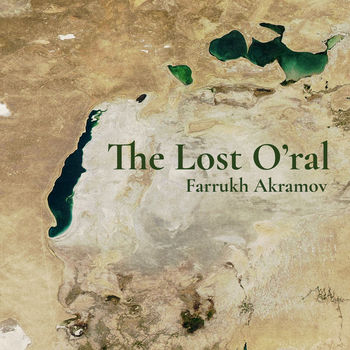WAV
320 mp3
WAV
All
All
Album
Compilation
Singl
Sample pack
Audiobook
Ringtone
Sort Options
A-Z title
Z-A title
A-Z artist title
Z-A artist title
A-Z label title
Z-A label title
Date
Date rev
Bestsellers
Items per page: 5
5
10
20
50
100
items 1 to 1 of 1
The Lost O’ral
"The Lost O'ral" translates as "Lost Aral". Why O'ral and not Aral, the fact is that if in the Kazakh, two letters 'A' are used in the word, then in the Uzbek language two letters 'O' are used, and the apostrophe after the first letter 'O' is a certain line between the Uzbek variant and Kazakh version of this word (in Uzbek "Orol"). The idea of this kind of name mix originated from the location of the Aral Sea, that is, the sea is located both on the territory of Kazakhstan and on the territory of Uzbekistan.
This work describes the problems of the Aral Sea and its consequences. The drying up of the sea over the course of several years has gradually led to global climate change and a deterioration in the health of those peoples who live in the Central Asian area. This is primarily the drying up of the sea itself, which indicates that there are no marine life, food and favorable nature. The catastrophe of the consequences of the drying up of the Aral Sea reached the ancient city of Bukhara and its vicinity.
This is the rising salt from the dried land of the sea, carried by the wind for hundreds of kilometers, this is the spreading radiation that comes from the ammunition flooded by the Soviet authorities. After all, it is not in vain that nature gave a retaliatory blow to people. People themselves began to artificially harm the sea by opening the way from the Syrdarya and Amudarya to fields for irrigation.
The descending and ascending passages in the piece resemble the flow of water, or even a sea wave. But, due to the fact that the paths for irrigation were open from different sides and very many, the passages sound dissonant. Short pointillistic notes, these are grains of salt that reach the wind and remain in the air for a long time. The multiphonics that have appeared in wind instruments convey the illness of people and the generally unhealthy atmosphere in the vicinity. The melodic material, which has a dance character, characterizes the peoples who live on the territory of Uzbekistan and Kazakhstan.
NOTHING FOUND!
items 1 to 1 of 1

